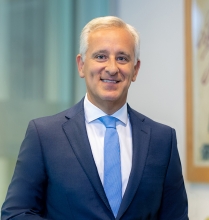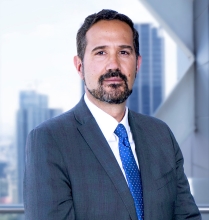International Arbitration Newsletter - December 2021 | Regional Overview: Europe
The most relevant European updates from the global International Arbitration and ADR practice group at Garrigues.
SPAIN
Spain fails in its attempt to reopen ICSID case on the grounds of 'Komstroy' resolution
Less than three months after the Komstroy v. Moldova (ECJ Case 741/19) decision was issued, an ICSID tribunal has issued the first decision in which a Member State (Spain) has tried to reopen an ECT related case by bringing forward the Komstroy decision as a new fact.
The ICSID tribunal declined to reopen the case as it considered that, in addition to the decision being res judicata, the Komstroy case did not alter its conclusions, as international law principles prevail, even if intra-EU ECT related arbitration is contrary to EU Law.
FRANCE
ICC award stands strong in the face of COVID-19
The French Courts have decided to uphold an award issued by the ICC in the earliest stages of the first COVID-19 lockdown.
Due to the uncertainty of the times, when issuing the final award, the Tribunal did not meet in person and each arbitrator signed a separate signature page, dated according to the date of signature. This, according to the challenging party, created doubts regarding the award’s signature date and lead to questioning whether each arbitrator had, in fact, signed the same document.
The French courts dismissed the challenge stating that, at the date of signature of the award, clearly dated as being 26 March 2020, there were no COVID-related guidelines or protocols set out by the ICC, thus allowing the Tribunal to act as they deemed fit at the time, taking into account the special circumstances of the pandemic.
FINLAND
Finland faces its first treaty claim from Chinese investor
In January 2021, after being held in custody on suspicions of facilitating illegal immigration and human trafficking in his business center, which was searched and closed by Finnish authorities, a Chinese investor named Wang Jiazhu initiated an ad hoc arbitration against Finland under the UNCITRAL rules in London pursuant to the China-Finland BIT. This stands as the first investment treaty claim against Finland, with the country raising jurisdictional objections on the grounds that Mr. Wang has already attempted to bring a claim before the Finnish courts, thus breaching the “fork in the road” provision of the BIT.
In 2007, a China Center that Mr. Wang had invested into, opened in Finland, engaging in the promotion of Chinese products and business. In 2009, Finnish authorities conducted an unprecedented raid, reportedly involving 150 guards and police, as well as two helicopters and a troop of police dogs, against the Center and Mr. Wang on suspicions of illegal immigration and human trafficking. Mr. Wang was later arrested and held in custody for 3 month and was released without any charge in 2010 after a ruling from the Finnish Supreme Court. Mr. Wang argued that during his detention, the authorities unfairly rejected his bail applications and compelled him to sign a document in Finnish, which he could not understand, to authorize his lender bank to sell his property.
Subsequently, Mr. Wang brought a claim against the Finnish authorities and sought EUR 440 million in damages before the Finnish Courts, which was ultimately rejected. Mr. Wang resorted to a UNCITRAL arbitration seated London, claiming the Finnish authorities had breached the BIT’s fair and equitable treatment and expropriation principles, as well as the guarantee to provide constant protection and security under the BIT. Besides bringing up the “fork in the road” provision allegations, the Finnish authorities also maintained that the actions against Mr. Wang and his Center had been ruled as legal by the parliamentary ombudsman.
Contacts



-
+52 55 1102 3570
-
+52 81 8153 3900
-
+52 442 296 6400
-
+57 601 326 69 99



